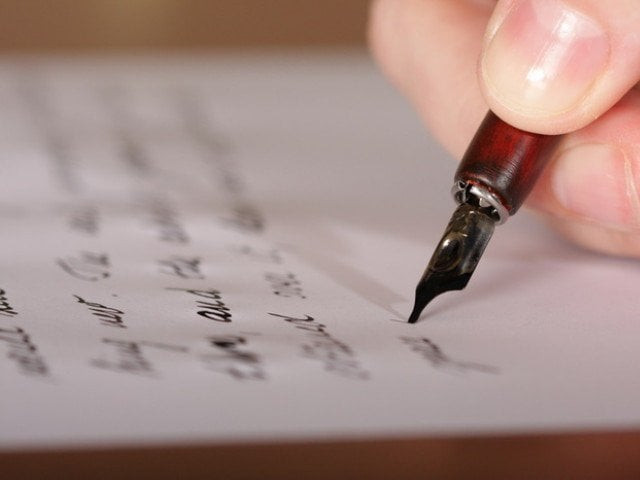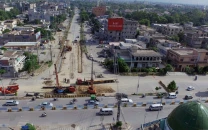Greetings: End of a decades-old tradition
With advent of email services and social media, people prefer to send impersonal, mass greetings to their loved ones

PHOTO: REUTERS
With the advancement in technology and the changing style of communication, people now prefer to send impersonal, mass greetings to their friends and family through social media platforms and electronic messages instead of investing in Eid cards.
“Why should I purchase an Eid card when I can easily send messages to my friends on WhatsApp?” a resident of Lahore Tayyab Raza told The Express Tribune. “I don’t think so that people of this generation care about such things anymore.”
In the past, greeting cards were considered a major part of Eid celebrations. With the arrival of Ramazan each year, hundreds of Eid card stalls would sprout in all big and small bazaars and neighbourhoods of Lahore.
A variety of cards used to be available for the purpose, including those that featured Islamic calligraphic art, pictures of mosques, the Ka’aba, and the shrine of Prophet Muhammad (PBUH). That apart, cards featuring pictures of flowers, teddy bears, dolls, and even actors and actresses had been very popular.
The disappearance of Eid cards not only put an end to the decades-old tradition of Pakistan but it has also lead to economic losses for a lot of people.
A publisher from Lahore’s Urdu Bazaar Muhammad Riaz said that he had to shut down his large Eid-card printing industry.
“There were more than 100 small and large publishers in Lahore who printed Eid cards. It was a booming industry which, after facing a decline for many years, has now completely vanished,” Riaz said. “We had to incur losses worth millions of rupees.”
Social activist Alina Azhar says that before Eid, the majority of people used to express their love to their friends and family through Eid cards and people used to anxiously waiting for Eid cards.
“In the past, people would make efforts to go to the post office and send Eid card to their near and dear ones in other cities. Some people would even send Eid cards to their friends and relatives living abroad. Such a gesture of love and care cannot be expressed through an electronic message,” she said. “People used to save Eid card and even displayed them in their houses.”
While most people believe that the trend of exchanging cards on Eid has come to an end, a resident of Defence Lahore Umm-e- Rabab opined that the custom is still in place, but the source has changed, so it should not be taken as something negative.
“People no longer have the time to go to Eid card stalls, nor do they want to stand in queues to post them,” she said. “Instead, on the day of Eid there is an additional burden on mobile phone networks because everyone sends Eid greetings via SMS or messaging apps,” she said. “People still make an effort to greet their friends. Also, it’s a more environmentally-friendly way of greeting each other, so that is positive.”
Another Lahori named Waleed Ahmed pointed out that modern technology and smartphones have made the trend of Eid inexpensive, easier, and more attractive for people to express their feelings.
“Still, those of us who have enjoyed selecting, writing, sending, and receiving Eid cards will never be able to enjoy the trend of sending an electronic message,” he said.
Published in The Express Tribune, May 19th, 2020.



















COMMENTS
Comments are moderated and generally will be posted if they are on-topic and not abusive.
For more information, please see our Comments FAQ